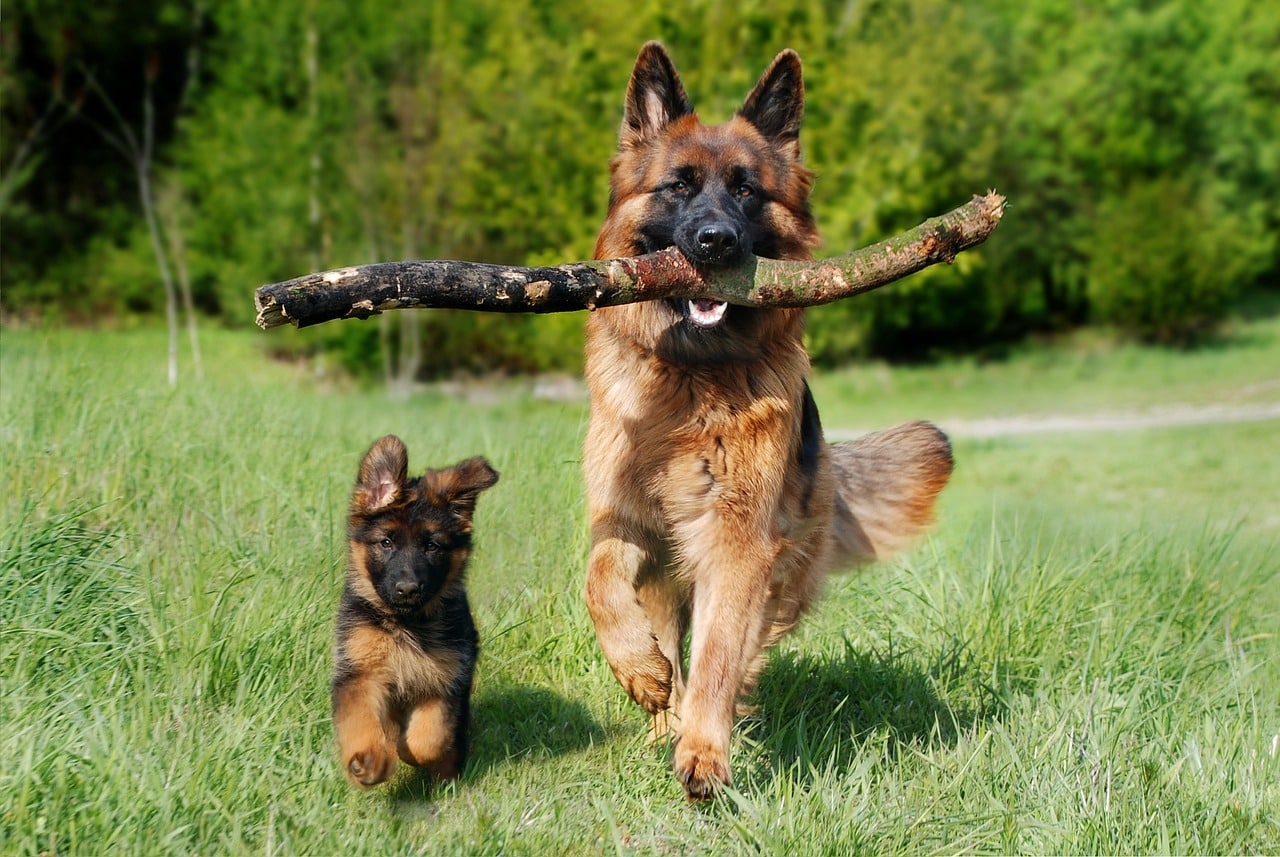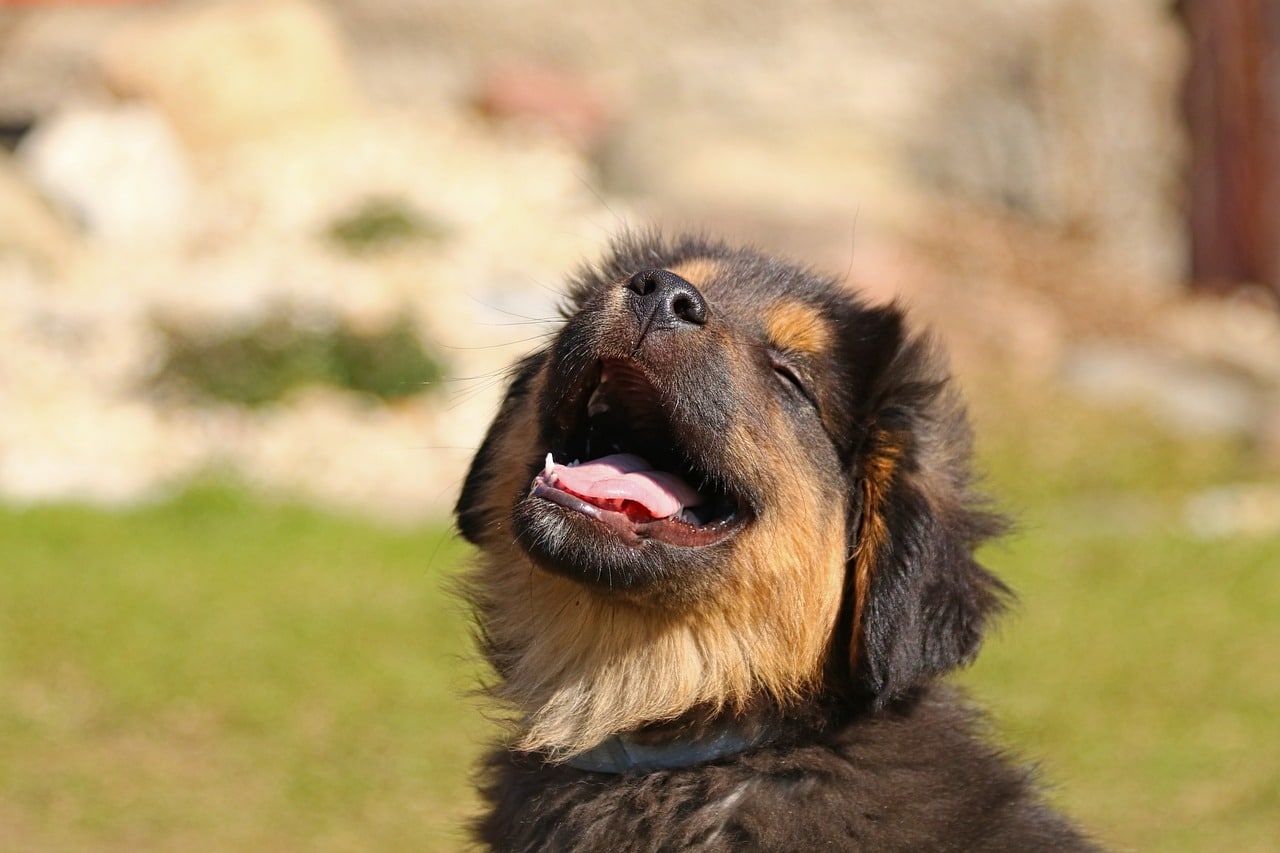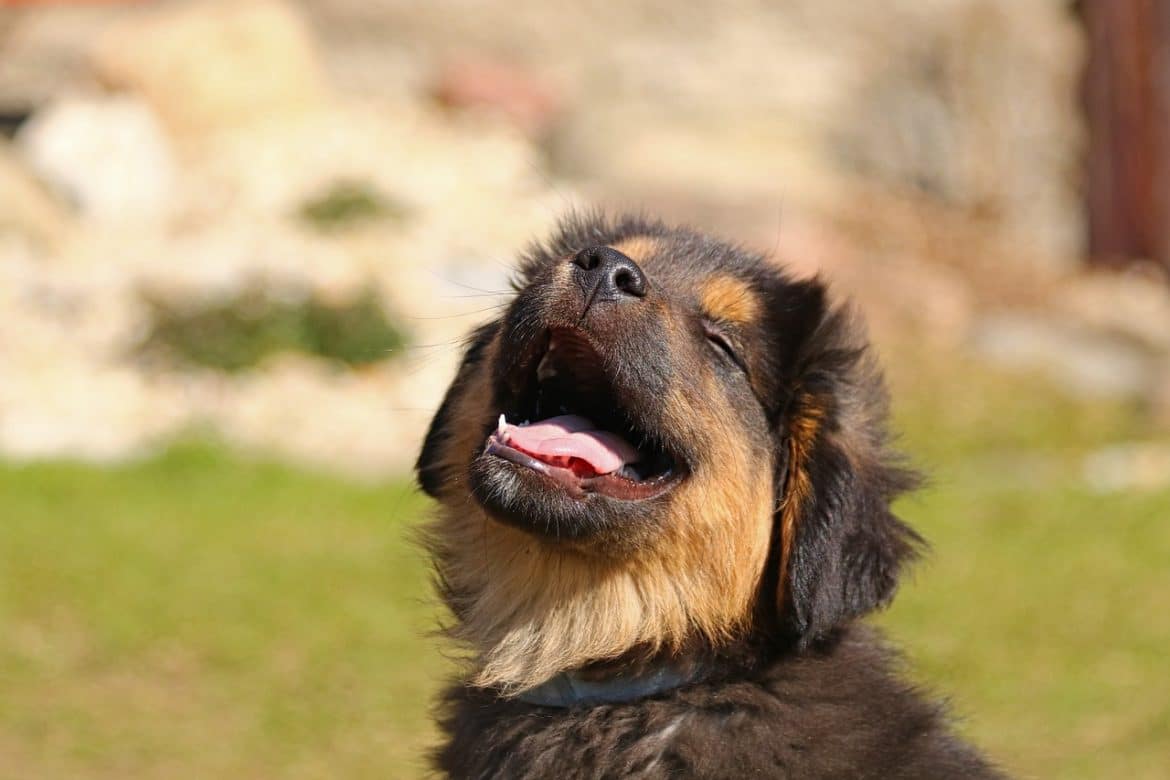Have you ever wondered why your dog keeps moving her puppies from one place to another? Understanding a dog's motherly instincts can shed some light on this behavior. Dogs, just like humans, have strong maternal instincts that drive them to protect and care for their young. This instinctive behavior includes relocating their puppies to a safer and more comfortable environment. In this article, we will explore the fascinating world of a dog's motherly instincts and uncover the reasons behind their puppies' frequent relocations. So, let's delve into the world of doggy motherhood and discover the remarkable instincts guiding their actions.

This image is property of pixabay.com.
Understanding a Dog's Motherly Instincts
Dogs are known for their loyalty, companionship, and unconditional love. One of the remarkable aspects of a dog's behavior is their strong motherly instincts. Similar to humans, dogs experience the powerful bond between a mother and her offspring. Understanding a dog's motherly instincts is essential for dog owners to provide the necessary support, care, and guidance to their furry companions.
Definition of Motherly Instincts
Motherly instincts in dogs refer to the natural and instinctive behaviors displayed by female dogs towards their puppies. These behaviors are driven by the biological connection and attachment established during pregnancy and childbirth. The motherly instincts encompass protective and nurturing behaviors, as well as the responsiveness to the puppies' needs.
Signs of Motherly Instincts in Dogs
Observing and understanding the signs of motherly instincts in dogs can help dog owners appreciate and support their canine companion's nurturing nature. Some common signs include:
Constant Licking and Cleaning
A mother dog will constantly lick and clean her puppies. This behavior serves multiple purposes, including keeping the puppies clean and hygienic, stimulating their bodily functions like urination and defecation, and fostering a sense of comfort and security.
Cuddling and Nesting Behavior
Mother dogs often exhibit cuddling and nesting behavior to ensure their puppies' warmth and protection. They create a safe and cozy spot for their puppies by nestling them close and guarding them against external threats.
Alertness and Protective Stance
A mother dog is always on high alert, constantly monitoring her surroundings to ensure the safety of her puppies. She will assume a protective stance, often standing tall with her ears pricked, ready to defend her litter from any perceived threats.
Providing Milk and Nursing Puppies
Perhaps one of the most significant signs of a dog's motherly instincts is the provision of milk and nursing her puppies. The mother's milk is crucial for their puppies' nutrition and immune system development. Nursing also plays a vital role in establishing a bond between the mother and her offspring.
Importance of Motherly Instincts in Dog Behavior
A dog's motherly instincts play a pivotal role in shaping their behavior and their puppies' development. Understanding the importance of these instincts can help dog owners provide the right environment and support. Some key reasons why motherly instincts are crucial include:
Bonding and Attachment with Puppies
A strong bond between a mother dog and her puppies is fundamental for their overall well-being. The motherly instincts facilitate this bonding process, ensuring that the puppies feel secure, loved, and nurtured. This bond forms the foundation for their social and emotional development.
Ensuring Puppies' Survival
Mother dogs possess the innate knowledge and skills to ensure the survival of their puppies. Through their motherly instincts, they teach their offspring essential life skills such as hunting, self-defense, and socialization. They also provide the necessary care and nutrition for their puppies' growth and development.
Teaching and Socializing Puppies
Mother dogs play a vital role in teaching their puppies about the world around them. From basic obedience commands to navigating social interactions with other dogs, motherly instincts guide the puppies through their essential learning phases. This early socialization is crucial for the puppies' future behavior and integration into the canine community.
Development of Puppies' Emotional Health
A dog's motherly instincts contribute significantly to the emotional health of their puppies. The constant warmth, comfort, and protection provided by the mother dog ensure the puppies feel safe and secure. This environment fosters the development of emotional resilience, reducing anxiety and fear in the puppies' later life stages.
The Reason Behind Her Puppies' Relocation
It is not uncommon for dogs to relocate their puppies shortly after giving birth. This behavior can puzzle dog owners, leading them to question why their furry friend is constantly moving her litter. Understanding the reasons behind this behavior can shed light on the mother dog's instincts and the importance of ensuring her puppies' safety and well-being.
Why Do Dogs Relocate Their Puppies?
Dogs relocate their puppies primarily as a result of their natural instincts for safety and protection. In the wild, this behavior ensures that the newborns are shielded from potential dangers and threats. By relocating her puppies, the mother dog aims to find a safer and more secure environment.
Factors Influencing Puppies' Relocation
Several factors can influence a mother dog's decision to relocate her puppies. These factors are:
Presence of Predators
The presence of predators can trigger a mother dog's protective instincts and prompt her to relocate her puppies to a safer location. Even in domestic settings, dogs may exhibit this behavior if they perceive any potential threats in their surroundings.
Lack of Suitable Shelter
If the mother dog identifies that the current nesting area does not provide adequate shelter or protection, she may choose to relocate her puppies to a more suitable location. This can include areas with better natural cover or a safer enclosure.
Discomfort or Inadequate Nesting Area
Sometimes, a mother dog may sense discomfort or inadequacy in the existing nesting area. This can include factors like excessive noise, limited space, or discomfort caused by human interference. To ensure her puppies' well-being and comfort, the mother dog may decide to relocate them.
Human Interference and Disturbance
In certain cases, human interference or disturbance in the nesting area can trigger a mother dog's decision to move her puppies. This can occur if the mother dog feels uncomfortable or threatened by human presence, resulting in an instinctive relocation.
Benefits of Puppies' Relocation
While the constant relocation of puppies may seem inconvenient or confusing, there are several benefits associated with this behavior. These benefits are:
Protection from Predators
By relocating her puppies, the mother dog can minimize the risk of predator attacks. Finding a safer location away from potential threats improves the chances of the puppies' survival, especially in areas where wildlife or other predators are present.
Access to Better Resources
Relocating to a new area may provide the mother dog and her puppies with access to better resources. This can include better food sources, cleaner water, and suitable shelter, all of which contribute to the puppies' overall health and well-being.
Reduced Risk of Disease
In some cases, the mother dog may perceive the current location as posing a higher risk of disease transmission to her puppies. By moving to a new area, she minimizes exposure to potential pathogens, ensuring the puppies have a better chance of staying healthy.
Opportunity for Early Socialization
Relocating the puppies can also provide valuable opportunities for early socialization. By exposing the puppies to different environments, scents, and sounds, the mother dog helps them develop resilience, adaptability, and confidence, preparing them for future interactions in their surroundings.
Disadvantages of Puppies' Relocation
While there are benefits to the puppies' relocation, it is important to consider the potential disadvantages of this behavior. These disadvantages are:
Separation Anxiety
Relocating multiple times can lead to separation anxiety in the puppies. The constant change of environment and separation from the familiar can cause stress and anxiety, affecting their emotional well-being.
Loss of Familiar Environment
Frequent relocation can result in the loss of a familiar and comforting environment. This loss can impact the puppies' sense of security and may affect their ability to adjust to new surroundings in the future.
Increased Vulnerability
During the process of relocation, the puppies may become temporarily separated from their mother. This separation increases their vulnerability to other potential threats, such as exposure to extreme weather conditions, accidents, or even abduction by other animals.
Lack of Consistent Care and Nutrition
If the mother dog feels compelled to relocate frequently, it may disrupt the consistent care and nutrition provided to the puppies. This inconsistency can impact their growth and development and may require additional monitoring and support from the dog owner.

This image is property of pixabay.com.
Development of Puppies' Emotional Health
A mother dog's nurturing behavior and her puppies' emotional health go hand in hand. The motherly instincts displayed by the dog significantly contribute to the puppies' emotional well-being and overall development. Understanding this connection can help dog owners provide a nurturing environment that promotes emotional resilience and stability in the puppies.
Internalizing Emotional Resilience
Through their motherly instincts, mother dogs help their puppies internalize emotional resilience. The constant care, affection, and protection exhibited by the mother dog instill a sense of security and stability in the puppies, enabling them to face future challenges with confidence.
Reducing Anxiety and Fear
A mother dog's nurturing behavior helps reduce anxiety and fear in the puppies. By providing a safe and secure environment, the mother dog helps the puppies develop healthy coping mechanisms, minimizing stress and promoting emotional well-being.
Promoting Emotional Well-being
The presence of a nurturing mother dog facilitates the development of the puppies' emotional well-being. The puppies learn to trust, form strong bonds, and regulate their emotions through their interactions with their mother. This foundation contributes to their overall happiness and stability in the years to come.
In conclusion, a dog's motherly instincts are a remarkable aspect of canine behavior. Understanding these instincts, the reasons behind puppies' relocation, and the impact on their emotional health is crucial for providing optimal care and support to both the mother dog and her puppies. By appreciating and nurturing a dog's motherly instincts, dog owners can strengthen the bond with their furry friends and ensure the well-being of the entire canine family.

This image is property of pixabay.com.


